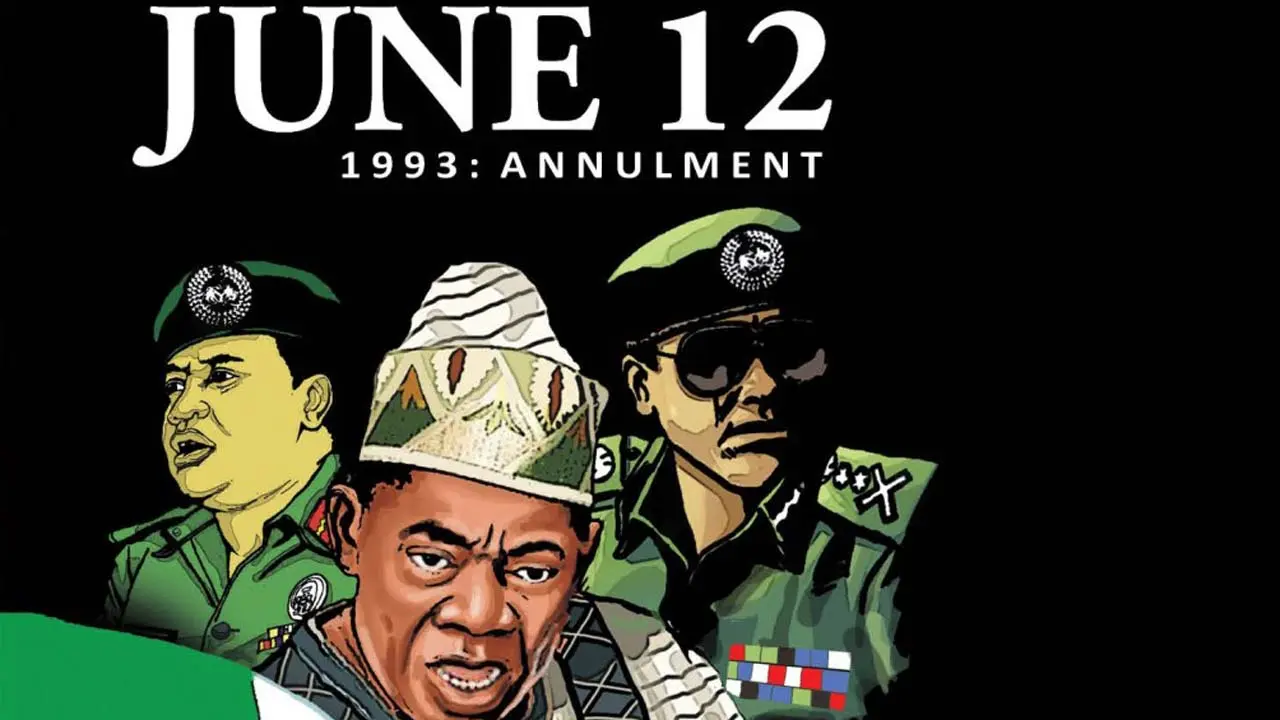A DAY OF DEMOCRATIC IRONY AND A CALL TO RECLAIM NIGERIA’S DEMOCRATIC PROMISE
June 12 stands as a monumental day in Nigeria’s political history. A day when Nigerians rose above ethnic, religious and regional divides to vote in an election that was widely adjudged free and fair. The 1993 presidential election, won by Chief MKO Abiola, symbolized national unity and democratic potential. Its annulment by the military was a betrayal of the collective will of the people. Decades later, the shadows of that betrayal still linger, casting doubts on whether Nigeria has truly embraced the spirit of democracy. Today, democracy in Nigeria faces profound challenges. Although we operate under a civilian government, the principles that underpin true democracy justice, accountability, inclusion, and freedom are steadily being eroded.
The Current Democratic Landscape puts Nigerians’ freedom of expression under threat. Young Nigerians are harassed, arrested, and detained simply for speaking out on social media or through artistic expression. Instead of serving as a platform for public discourse, the civic space is being muzzled. The arrest of citizens for dissenting views reflects a growing intolerance that undermines democratic norms. Worsening insecurity further betrays the essence of democracy.
In the Middle Belt, including Benue, Plateau, Kaduna, Taraba and several other states, lives are lost daily to violent attacks, in the North East, banditry, and insurgency. Families are slaughtered in their sleep, and entire communities are displaced. The growing number of internally displaced persons (IDPs), the alarming out-of-school children statistics, and Nigeria’s unenviable position as the country with the highest rate of child malnutrition all speak to the failure of governance.
The cost of living in Nigeria today is unbearable. Food insecurity and unemployment are driving millions into deeper poverty. Youths, who should be the drivers of innovation and economic growth, are disillusioned and frustrated by the absence of opportunities and responsive leadership.
DEMOCRACY WITHOUT INCLUSION: THE CASE OF WOMEN.
Despite women’s active participation in Nigeria’s democratic struggles, their representation in governance and decision-making continues to decline. This exclusion contradicts the very essence of democracy, which demands equal representation and participation. If Nigeria is truly committed to achieving the Sustainable Development Goals (SDGs), particularly Goal 5 on gender equality, it must take concrete steps to increase women’s representation in politics.
The National Assembly must prioritize and pass the Special Seats for Women in Parliament Bill. This will institutionalize proportional representation and reserve seats for women, as practiced in several progressive democracies. It is not about tokenism: it is about correcting structural imbalances and ensuring that women’s voices are heard in decisions that affect their lives and the nation’s future. It is imperative for Democratic Institutions to safeguard and strengthen our democracy, Nigeria’s key institutions must rise to the occasion: Political Parties must reform themselves to become more democratic, inclusive, and issue focused and not toll the line of one-party system and money politics. They must create enabling environments for youth, women, and persons with disabilities to contest and win elections and not just be used as crowd pullers or supporters.
The Independent National Electoral Commission (INEC) must remain impartial, and transparent. The integrity of elections begins with the credibility of the electoral body. INEC must resist all forms of manipulation and ensure that votes count, results are not doctored, and the will of the people is respected.
The National Assembly, Judiciary, and Security Sector must live up to their constitutional roles. The doctrine of separation of powers must be upheld, not merely in theory but in practice. The legislature must boldly check executive excesses. The judiciary must remain the last hope of the common man impartial, fearless, and immune to political pressure. Security agencies must be neutral, professional, and protective of all citizens, not tools for political intimidation. Civil Society and the Civic Space must be protected and encouraged. Democracy thrives when citizens can organize, speak out, and advocate without fear. Civil society organizations, media, and activists must be allowed to engage freely in holding power to account and promoting social justice.
June 12 should not just be a date on the calendar, it must be a national call to renew our democratic commitment. It must remind us that democracy is not about elections alone. It is about how we are governed, how power is distributed, and how justice is ensured.
Nigeria has a long way to go. But the path to true democracy is still open if we choose it. We must demand better. We must protect our freedoms. We must include all voices, especially women, youths, and the vulnerable. And above all, we must never forget that democracy is only as strong as the people’s ability to defend it.
In this 2025 June 12 remembrance, let it be known that we do not just remember history we reclaim it, and we recommit to building a Nigeria where democracy is real, inclusive, and truly for the people.
HAPPY DEMOCRACY DAY!





